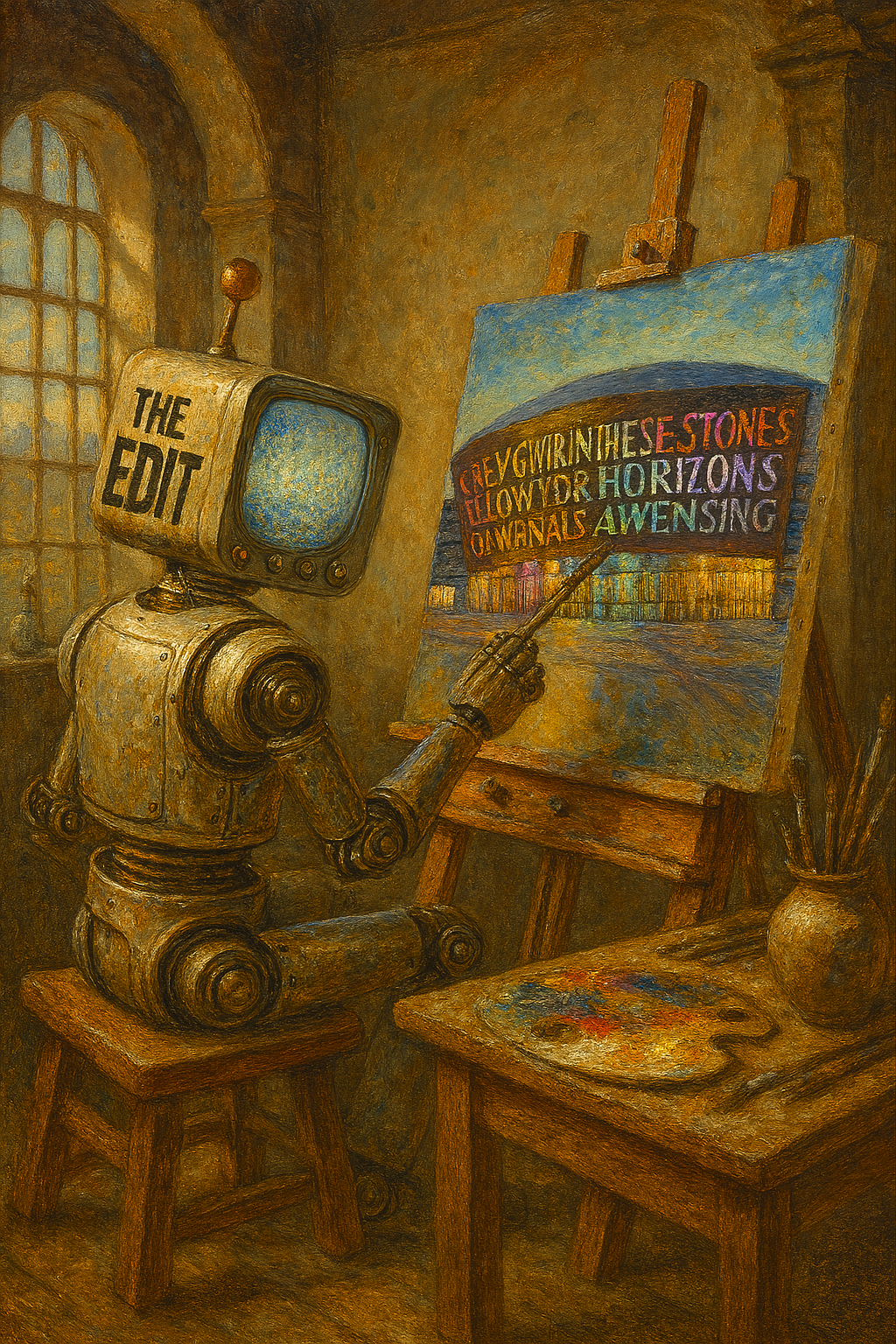The Prompted Revolution: AI, Google Flow, and the Future of Welsh Creativity
In the ever-evolving symphony of creative expression, artists have always sought new tools to sharpen their voice and elevate their vision. From cave walls to digital canvases, the journey of creation has forever danced between idea and execution. Now, with the rise of artificial intelligence in the creative sector—particularly tools like Google Flow—we may be witnessing the most transformative leap yet.
And here’s the provocation: AI is now the brush and the canvas.
But the hand that moves the brush? That’s still us.
From Creator to Prompter: A Shift in Identity
Google Flow, a sleek new AI-powered software, enables users to generate video content with staggering speed and minimal technical skill. For producers of theatre, film, TV, and exhibitions, this marks a seismic shift. The ability to prompt an idea, refine it with speed, and reach the realisation phase without the typical budgetary or staffing constraints? That’s extraordinary.
For decades, creatives have been the ones asking questions, adjusting the frame, demanding “better” or “braver.” With Flow, we transition into a new role: *Prompters*. Feeding the system with our intention, our imagination, and our story. And, if used wisely, we’re not losing authorship—we’re gaining acceleration.
The Democratic Boom: Creativity for All
Perhaps the most thrilling consequence of this tech isn’t its power—it’s its accessibility.
Across Wales, small and micro organisations have long struggled with the cost of media production. Commissioning video adverts or cinematic campaigns has felt like a luxury, reserved for well-funded institutions. Flow changes that.
Now, the local pottery studio in Powys or the upstart theatre group in Butetown can create polished, purpose-driven content—without breaking the bank or outsourcing control. For grassroots creatives, this is more than a tech upgrade. It’s a liberation.
And for emerging artists who've harboured visions but lacked the technical knowledge or financial backing to realise them? The gates are swinging wide open. Platforms like YouTube already offer global reach. But with tools like Flow, we finally have the means to create for it—meaningfully, professionally, independently.
This is not just inclusion. This is amplification
The Uneasy Edge: Concerns and Consequences
Of course, disruption brings discomfort. Editors, designers, and other specialists may rightly feel unease as AI becomes a co-creator. The creative pipeline—once rich with tactile collaboration—is shifting towards algorithmic augmentation. That deserves discussion. We must advocate for retraining, fair transitions, and ethical implementation.
But let’s not overlook the deeper truth: the artist’s impulse is unchanged. To share something bold, beautiful, and true. If AI is helping creatives traverse the gap between idea and execution faster—especially those who were previously excluded—then we must approach it not with fear, but with stewardship.
What This Means for Wales
Wales has always been a crucible of storytelling. From the valleys to the stage, our communities pulse with imagination and cultural pride. With accessible AI, our artistic output could become more abundant, more diverse, and more visible.
Let’s be clear: this isn’t about trading heritage for algorithms. It’s about inviting technology into the creative fold—with clear boundaries and bold heart.
We still need the hand to guide the brush. We still need the storyteller behind the system.
And we still—undeniably—need the story.

